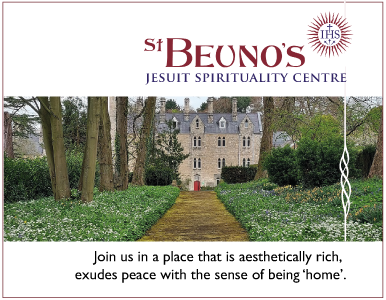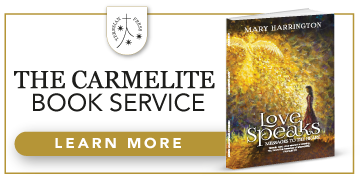Sorry, no records were found. Please adjust your search criteria and try again.
Sorry, unable to load the Maps API.
The Order of Friars Minor in Great Britain are sad to announce the death of Fr Austin Linus McCormack. Fr Austin was born on 29th Apr 1931, and was Professed as a Franciscan friar on 21st Sept 1949. He was Ordained a priest on 26th Mar 1955 and died on 2nd May 2024.
HOMILY PREACHED BY FR PATRICK LONSDALE OFM AT THE FUNERAL MASS OF AUSTIN LINUS McCORMACK OFM, 29th May 2024
The words of Scripture to which we have listened (Wisdom 11:22-12:2 and John 6:37-40) have called to mind the faith that sustains us on our pilgrimage through life. The reading from the Book of Wisdom is a loving prayer to God the Creator that expresses the deep conviction of the person of faith, whether before Christ or after his appearance among us. ‘You are merciful to all, because you can do all things,’ ‘you love all that exists… had you hated anything, you would not have formed it.’ It seemed these were appropriate words to hear at the funeral of a Franciscan friar, one who followed Christ in the company of St Francis of Assisi. The Gospel reading also confirms the Christian’s faith and hope, as we hear the Lord’s promise: ‘All that the Father gives me will come to me, and whoever comes to me I shall not turn away.’ A Christian funeral is one of those occasions when, even in the midst of sadness and loss, our faith can be confirmed as we thank God for a brother or sister who has died, and as we commend them to the Lord, the ‘lover of life.’
Over the years Austin served in a variety of ministries and appointments – you will find copies of the CV he drew up at the back of church. He was a teacher, retreat giver, chaplain, lecturer. He was involved in the initial formation of our friars, at the novitiate (Chilworth)and student house (Canterbury). He was the Minister Provincial 1996-2005, and Guardian and Parish Priest at Chilworth and then at Woodford Green. I know people will testify to the contribution he made to their lives through all those different ministries and appointments. Many were helped by his preaching at Mass, and in one-to-one conversations.
One Sunday in July 2013, Austin took part in a short interview with Paddy O’Connell, which was broadcast on Radio 4’s Broadcasting House. Paddy O’Connell opened the conversation by referring to recent moves by both Pope Francis and Justin Welby, the Archbishop of Canterbury, to signal ‘a new push against poverty’. Paddy O’Connell asked if it was a coincidence that both leaders were focussing on the poor at this time, and Austin responded by saying: ‘To me I see it as both of them getting in touch with who they are’, and he went on to say: ‘they are representatives of a church of the poor and as we have seen over recent times both churches have not been the church of the poor in certain parts of the world.’ When asked if they were doing the right thing, Austin went on to say: ‘They are doing the right thing provided they do it by example. From what we’ve seen that’s exactly what they are doing, both of them; the simple life style. I’d say a motto that both of them have embraced is “keep it simple”’, to which Paddy O’Connell responded: ‘That’s very much your life’s motto’, and Austin agreed.
I feel there are some expressions here that guided so much of Austin’s approach to people and to life in general. He spoke of the Pope and the Archbishop as ‘getting in touch with who they are’. He agreed that their motto and his could be: ‘keep it simple.’ And, being true to his Franciscan spirituality, he supported the efforts of the church leaders to turn the attention of their respective churches to the needs of the poor of the world.
Just to reflect on one of these expressions seems to me to describe the effect of Austin’s ministry of guidance and his preaching. Getting in touch with who they are. On his CV, you will notice that for some time, Austin was involved with the Samaritans, even becoming Director of the Redbridge branch of the Samaritans at Ilford. The Samaritans, as you know, make themselves available to people who are facing difficult decisions about life, even whether to go on or not. The Samaritans are listeners in the first place. People can speak to them without feeling they are being judged, and these were two qualities that seemed to guide Austin’s ministry in general – an ability to listen, and to accept a person without judgement, helping a person to get in touch with who he/she really was, a beloved child of God, and then deciding how to go forward.
One of the messages Austin kept alongside the transcript of that interview with Paddy O’Connell was a message from an American friar, Mychael Judge, who spent part of his sabbatical leave in Canterbury during the time Austin was there. Mychael wrote to another person on Holy Saturday 1986, and mentioned Austin: ‘tell Austin, that he is loved and appreciated. Just to say gently and calmly you are one of the great, truly great friars I have met in my 38 years. You don’t see yourself – we do! Never in a bad mood, smiling, supporting some of the brethren when it is something else you would rather do. Never judging [a marvellous gift of yours], prayerful and so on. You are good, very good, Austin, and I thank God I have had these few months with you. God loves you very much, and so do I – we all do.’ Mychael Judge died in the 9/11 tragedy of 2001 – he was working with the New York Fire Department.
Besides listening without judging, the Samaritans also help people to discern their future direction – not by giving advice, but simple by accompanying them in the process of decision making, as they survey their options, possibilities, and so on. I think Austin also practised this non-directive approach to helping people ‘keep it simple’, and so help them discover their freedom and embrace it.
Incidentally, Austin in the way he helped and accompanied people was really acting on the principles of Synodality that Pope Francis is asking the whole church to embrace – a readiness to listen to each other, without judging, and to discern together the way the Holy Spirit would have us move forward.
Austin’s mobility had deteriorated over the last months of his life. His family generously provided him with a wheel chair, and he was very happy in his last weeks to sit in that chair most of the time and move about the care home where he spent the last weeks of his life. Two weeks before he died, Austin was admitted to Whipps Cross Hospital. He wasn’t able to speak at length for most of that time, but some days he was able briefly to greet his visitors. He wasn’t always conscious enough to receive Holy Communion, but on a number of occasions we celebrated the Sacrament of the Sick with him.
From what I’ve said about his appointments and ministries as a Friar, and about his attitude to life, it is clear that he embraced so many people and communities in different places, and was available to accompany them as a brother and friend. I would like to finish with a few words from a poem by Mary Oliver, entitled When death comes. These words seem to me to sum up much of Austin’s attitude to life:
[When death comes]
I want to step through the door full of curiosity, wondering:
what is it going to be like, that cottage of darkness?
And therefore I look upon everything
as a brotherhood and a sisterhood,
and I look upon time as no more than an idea,
and I consider eternity as another possibility,
and I think of each life as a flower, as common
as a field daisy, and as singular,
and each name a comfortable music in the mouth,
tending, as all music does, toward silence,
and each body a lion of courage, and something
precious to the earth.
When it’s over, I want to say: all my life
I was a bride married to amazement.
I was the bridegroom, taking the world into my arms.
When it’s over, I don’t want to wonder
if I have made my life something particular, and real.
I don’t want to find myself sighing and frightened,
or full of argument.
I don’t want to end up simply having visited this world.
Farewell, Brother Austin! May the Lord bless you and keep you!
Eternal rest…




































